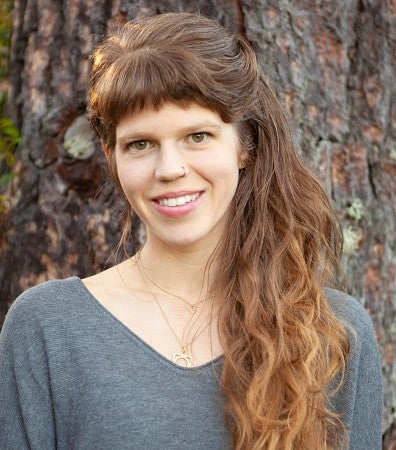Current Students | Recent Graduates
Current Students
Lydia Macklin Camel
PhD candidate, Landscape Architecture, University of Oregon
MLA, Cornell University
BS, Geography, Minor: Geographic Information Science, Michigan State University

I grew up in metro Detroit somewhere between woodlots and wastelands. An artist at heart, an environmentalist by trade, I started this whole journey by turning literal trash into treasure, and eventually found my way from fashion design to landscape architecture. I am passionate about using landscape architecture to advocate for thinking ecologically as well as more diverse, more equitable, and more inclusionary outcomes in design practice. My research at the University of Oregon will be concerned with understanding the aesthetics of greenness, the project of greening, and the production of green spaces including what it means to “belong” in green space. By engaging in concepts of belonging from diverse human and non-human perspectives, I hope to interrogate greenness with subversive material/non-material cultures, challenge in the project of greening with decolonial operations, and collectively imagine more inclusionary realities for green spaces.
Advisor: Yekang Ko
Thomas Fiorelli
PhD candidate, Landscape Architecture, University of Oregon
MPA, University of Oregon
Graduate Certificate, Ecological Design, University of Oregon
BS, Planning, Public Policy and Management, Minor: Nonprofit Administration, University of Oregon
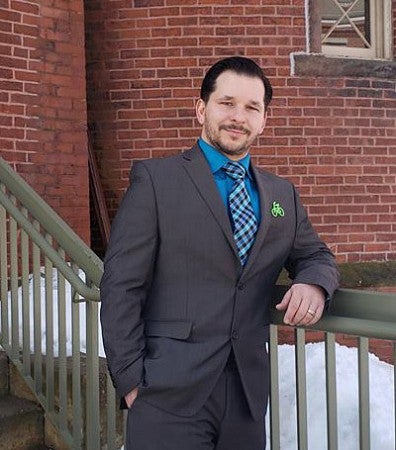
I was raised in New England, finished high school on Florida’s Gulf Coast, and relocated in 2009 to my current home in the Pacific Northwest. My doctoral work focuses on asking, “What design tradeoffs can be discovered from a multi-attribute visual preference survey of alternative future land uses on neighborhood brownfield sites?” A range of housing typologies, day-use facilities, urban agriculture models, and deployable infrastructure comprise my current focus on potential interim uses. The goal is to inform a methodology for assessing the economic, social, and environmental tradeoffs and demonstrating linkages with community and regional future planning goals to quantify the primary decision variables most relevant among multiple stakeholders. This methodology is developed in hopes that it will allow us to recommend better policies, design-specific ordinances, and opportunities for co-location.
Committee: Rob Ribe (Co-Chair), Kory Russel (Co-Chair), Yekang Ko, Rebecca Lewis (PPPM), Peter Keyes (Architecture, Institutional Representative)
Sara Loquist
PhD candidate, Landscape Architecture, University of Oregon
MArch, Louisiana State University
BA, Applied Management, St. Ambrose University
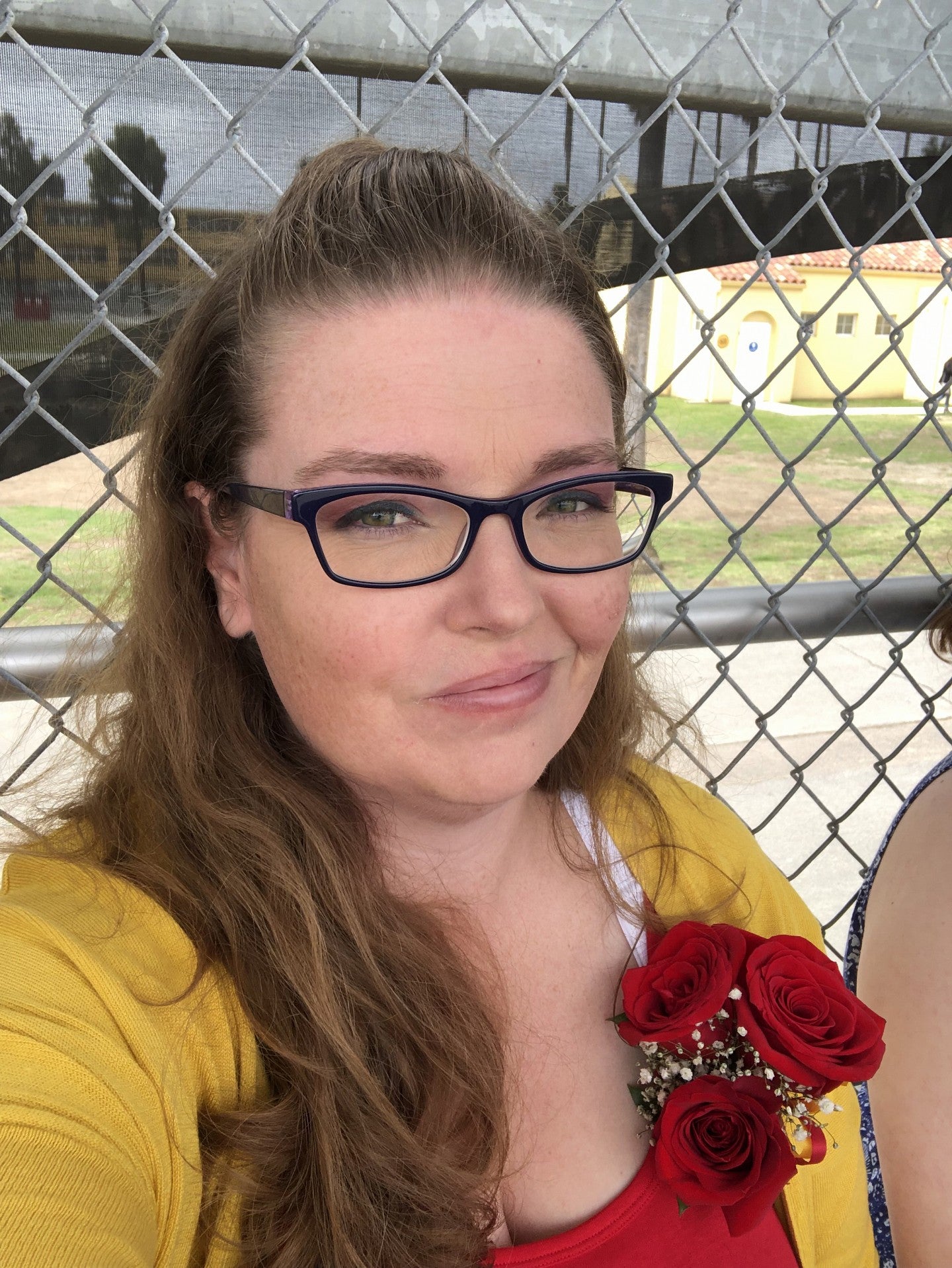
After growing up in eastern Iowa, I moved to Louisiana in 2008. After years of working in the corporate business world, I returned to school to get my Master's in Architecture from Louisiana State University. Hurricanes and coastal flooding/subsidence sparked an interest in climate resiliency/mitigation/adaption and resource-efficiency. In April 2021, I became a licensed architect, having worked mostly for healthcare clients. With my passion for climate change planning, I have decided my next steps are working toward climate design research, which is currently focused on the community aspect of resiliency; energy- and resource-efficiency and urban planning for climate change adaptation.
Advisor: Yekang Ko
Iryna Volynets
PhD candidate, Landscape Architecture, University of Oregon
MS, Architecture, Lviv Polytechnic National University
BA, Architecture, Lviv Polytechnic National University
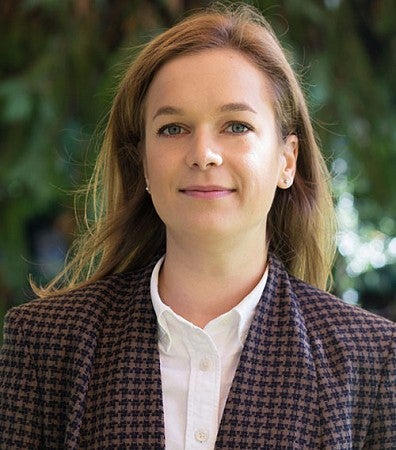
I grew up in Lviv, Ukraine, where I received my education and became interested in landform architecture. I am a practicing architect, owner of Volynets architectural bureau, and co-owner of MIstudio in Ukraine. My research interest lies at the intersection of building and landscape with a focus on the potential of landform architecture to open up new relationships between nature and architecture. Four years ago, I was a Visiting Fulbright Scholar in the Department of Architecture at the University of Oregon, where I produced the volume “Landform [in] Architecture,” an exploration of natural landforms, the way they form, and the way they change over time.
Committee: Mark R. Eischeid (chair), Ignacio López Busón, Justin Fowler (Architecture), Erin Moore (Architecture, Institutional Representative)
Yeongseo Yu
PhD candidate, Landscape Architecture, University of Oregon
MLA, Seoul National University, South Korea
BE, Landscape Architecture, Kangwon National University, South Korea
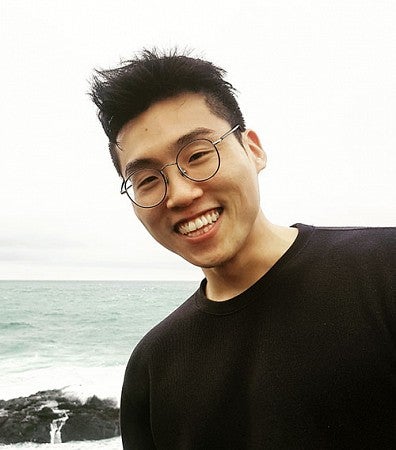
Being from Seoul, South Korea, I’ve felt the necessity of nature in a highly dense cityscape. As a landscape architecture student, I became curious about how urban nature and residents relate to each other and how urban nature influences human wellbeing. For my doctoral studies, I aim to explore the functionality of urban nature and its efficiency. I’m especially interested in quantitative methodologies—big data and spatial analytics tools—and I would like to deeply understand the relationship between humans and urban nature. Outside of my studies, I love listening to music, traveling, and taking photographs.
Committee: Yekang Ko (Chair), Rob Ribe, Junhak Lee, and Alexandra Rempel (ENVS, Institutional Representative)
Recent Graduates
Evan Elderbrock
PhD, Landscape Architecture, University of Oregon
MS, Environmental Studies, University of Oregon
BA, Geology, Macalester College
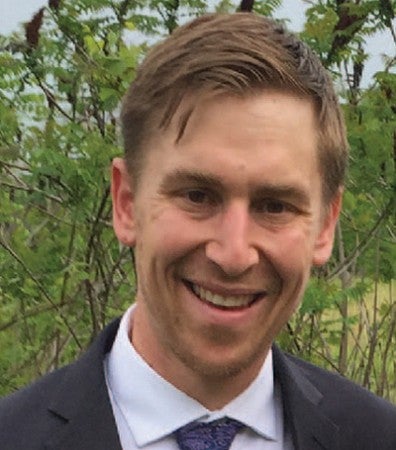
I grew up in Madison, Wisconsin and developed my fascination with the relationship between humans and the natural world while paddling the quiet waters of Minnesota and Ontario. I worked for four years as a field ecology instructor in Maine and California before returning to graduate school. I moved to Eugene to pursue a master’s degree in Environment Studies from the University of Oregon, developing research to assess stakeholders’ ecosystem service priorities and identify pathways to increase the delivery of ecosystem services at the neighborhood scale. I am thrilled to have joined the PhD program in Landscape Architecture, where I will be assessing the distribution of health benefits provided by urban green spaces to identify areas lacking public health amenities.
Dissertation: No Walk in the Park: Urban Green Space Planning for Health Equity and Environmental Justice
Committee: Chris Enright (Co-Chair), Kory Russel (Co-Chair), Yekang Ko (LA), Elizabeth Budd (Counseling Psychology and Human Services, Institutional Representative)
Chris Enright
PhD, Landscape Architecture, University of Oregon
MLA, University of Oregon
BLA, University of Oregon
BA, Botany, University of California Santa Barbara
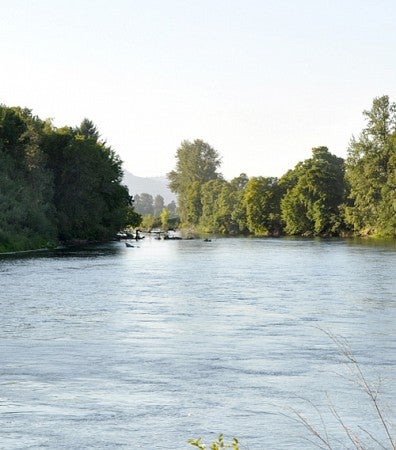
Although born elsewhere, the Pacific Northwest is my home. My dissertation, A Landscape Approach to Ecosystem Services in Oregon's Southern Willamette Valley Agricultural Landscape, proposes a landscape approach to ecosystem services in which they play a role in the intentional coevolution of social/ ecological systems. My research explores the potential for floodplain agricultural landscapes in Oregon's Willamette Valley to provide ecosystem services using an alternative futures framework in which a set of the landscape's biophysical processes are quantified using a geographic information system and aspects of sociocultural processes are explored through qualitative interviews with farmers. The biophysical and sociocultural research components are integrated into an alternative futures framework to compare the current landscape with a future landscape in which agricultural production includes ecosystem services.
Dissertation: A Landscape Approach to Ecosystem Services in Oregon's Southern Willamette Valley Agricultural Landscape
Committee: David Hulse (Chair), Bart Johnson, Thomas Oles, Stanley Gregory, Susan Hardwick (Institutional Representative)
Noah Kerr
PhD, Landscape Architecture, University of Oregon
MS, Historic Preservation, University of Oregon
BA, History, Hillsdale College, MI
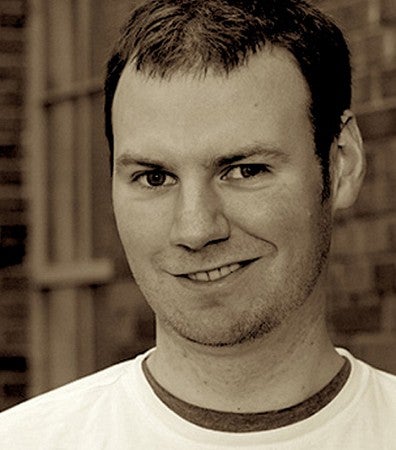
I am a native of rural Southern Michigan and have spent significant time working in New England and North Carolina before surrendering to Oregon’s persistent allure. My research follows my interest in cultural landscape interpretation, focusing on the use of repeat photography to reveal human changes in pre-1945 landscapes of the Pacific Northwest. This line of inquiry flows from my background in historic preservation theory and field methods, as well as work with cultural resource management. My current fellowship work with the Cultural Landscape Research Group (CLRG) investigates climate change effects within significant historic landscape sites in the National Parks.
Dissertation: Cultural Landscape Documentation and Repeat Photography: Linking Framework and Practice
Committee: Robert Z. Melnick (Chair), Mark R. Eischeid, Rick Minor (Historic Preservation), Marsha Weisiger (History, Institutional Representative)
Hervé Roland Memiaghe
PhD, Landscape Architecture, University of Oregon
MS, Conservation Ecology, University of Stellenbosch, South Africa
Diplôme Universitaire d’Etudes Scientifique (DUES), Biology-Geology-Chemistry, Université des Sciences et Techniques de MASUKU, Franceville, Gabon
Baccalauréat série de D, Collège Bessieux, Gabon
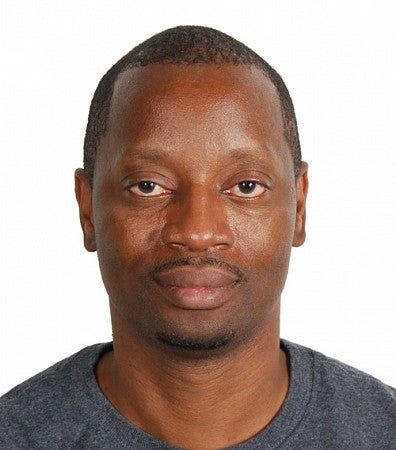
I was born and raised in Libreville, Makokou, and Kango in Gabon, Africa, and grew up in places surrounded by forest, where each activity such as planting, hunting, and fishing is driven by the movement of the sun. I enjoyed this harmonious time, which now guides my interest in the conservation of the Congo.
My research explores the dynamics of the Central African tropical forest and aims to integrate cultural heritage, development pressure, and conservation. This work conceptualizes the landscape as a spatially heterogeneous social-ecological system for human-elephant coexistence.
Dissertation: Investigating Forest Elephant Crop Depredation to Guide Landscape Management for Villager-Elephant Coexistence
Committee: Bart Johnson (Chair), Chris Enright, Nelson Ting (Anthropology), Dennis Galvan (International Studies, Institutional Representative)
Gwynne Mhuireach
PhD, Landscape Architecture, University of Oregon
MArch, University of Oregon
BS, Biology (Ecology, Evolution and Conservation Track), University of Washington
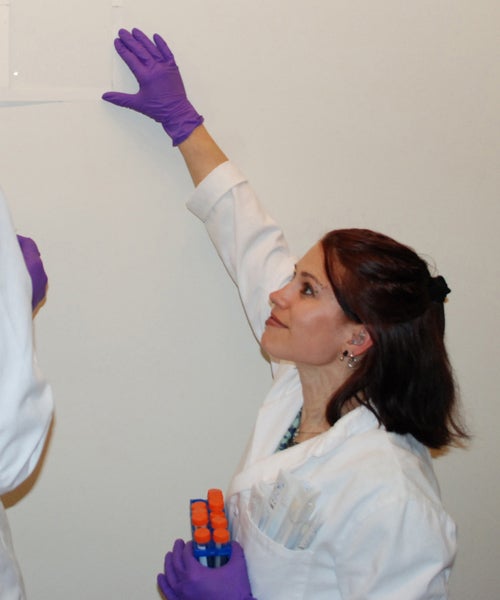
I was raised on a small family farm in rural Klamath Falls, Oregon, where I learned the value of spending time outdoors and working hard. The purpose of my doctoral research is to investigate how airborne microbial communities vary with the amount, structural diversity, and/or species composition of green space across 50 sites in Eugene. The intent of this project is to determine whether microbes constitute a plausible mechanism through which urban vegetation may influence public health. Recent findings suggest that exposure to a high diversity of microbes during early life, for example through living in highly vegetated environments, such as farms or forests, may have specific health benefits, including immune system development and stimulation. My research is partially supported by an EPA STAR Fellowship and a Graduate Research Fellowship from SRG Partnership, Inc., in Portland.
Committee: Bart Johnson (co-Chair) and Jessica Green (co-Chair)
Homero Marconi Penteado
PhD, Landscape Architecture, University of Oregon
MLA, University of Guelph, Canada
MArch, Universidade de Sao Paulo, Brazil
BArch and Urbanism, Universidade de Sao Paulo, Brazil
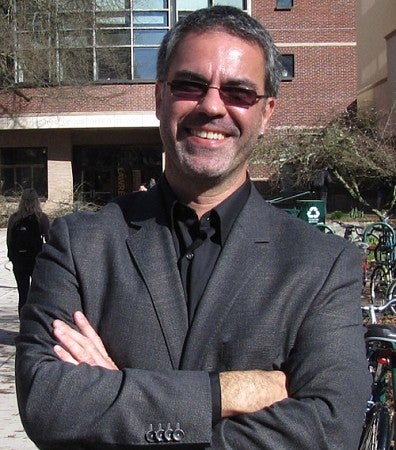
I grew up in Piracicaba, Brazil, a city where the beautiful but damaged Piracicaba River runs. The proximity to that river has molded my concerns as a landscape architect and researcher. My research explores a modeling approach for planning open space systems that aim to sustain biodiversity in areas facing urban expansion. I am interested in quantitative approaches to evaluate how spatial concepts based on landscape ecology theories affect wildlife populations. My investigation adopts an alternative futures study to test open space spatial concepts for patches, corridors and networks in combination with compact and dispersed urban development patterns, and an individual-based wildlife model to simulate the effects of habitat configuration on wildlife population sizes.
Committee: David Hulse (Chair), Bart Johnson, Robert Ribe, John Bolte, Mark Gillem (Institutional Representative)
Lanbin Ren
PhD, Landscape Architecture, University of Oregon
MS, Architecture, University of Cincinnati
MArch, South China University of Technology, Guangzhou, China
BArch, Chang An University, Xi'an, China
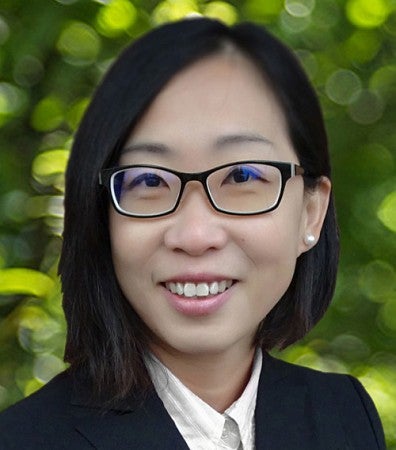
I was born in Harbin, China and raised in Xi’an. I now live in Eugene, Oregon with my husband and two daughters. I had approximately six years of professional experience, primarily in architectural and landscape architectural design with a dedication to social, cultural, and ecological sustainability, before I came to the University of Oregon. At UO, I primarily focused my scholarship on the integration of architecture and landscape architecture in sustainable design. For example, my doctoral dissertation examines park-above-parking projects—ground level parks with below-grade parking garages—and illustrates the contributions of such combined space in urban sustainability.
Dissertation: Park-above-Parking Downtown: A Spatial-based Impact Investigation
Committee: Mark Gillem (Chair), Deni Ruggeri, Robert Ribe, Yizhao Yang (Institutional Representative)
Hope Hui Rising
PhD, Landscape Architecture, University of Oregon
MLA, University of Michigan
MUP, University of Michigan
BS, Civil Engineering, Minor: Architecture and Planning, National Taiwan University, Taiwan
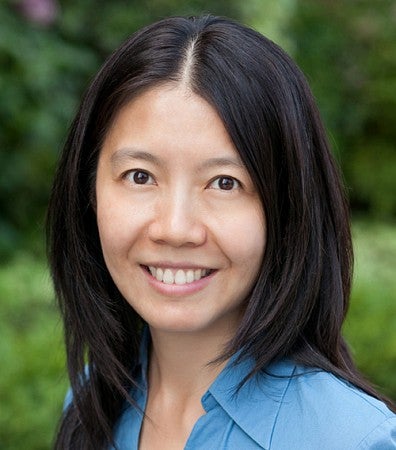
I was born in Taipei, and have lived in seven countries on four continents, and spent the last twenty years in the Midwest and both coasts of the U.S. My dissertation investigates how to introduce water into cities to engender a more coherent city image and to facilitate environmental adaptation.
Dissertation: Water Urbanism: Building More Coherent Cities
Committee: Robert Ribe (Chair), Deni Ruggeri, Amy Lobben, Elliot Berkman (Institutional Representative)
Elizabeth (Ellee) Stapleton
PhD, Landscape Architecture, University of Oregon
MLA, University of Oregon
BS, Biology and Environmental Studies, Guilford College
A 10th-generation Appalachian, I grew up in the mountains of east Tennessee, the traditional homeland of the Cherokee people. I am fascinated by the ways that social and ecological processes co-create urban landscapes and am particularly interested in the role of policy in shaping these spaces. My dissertation research examines the interconnected ecological and social outcomes of green stormwater infrastructure policy implementation in Portland, Oregon. Integrating science with design, I use microbial ecology as a lens for exploring the emergent and undesigned ecologies of these landscapes. Through my work I hope to advance the study of landscapes as complex social-ecological systems to facilitate greater equity and resilience in the landscape planning process.
Committee: Chris Enright (Co-Chair), Liska Chan (Co-Chair), Mark R. Eischeid, Krista McGuire (Biology, Institutional Representative)
Hong Wu
PhD, Landscape Architecture, University of Oregon
MS, Landscape Architecture, Tsinghua University, Beijing, China
BArch, Tsinghua University, Beijing, China
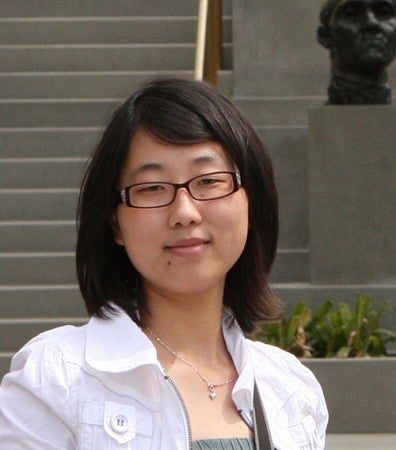
I grew up in southeast China, the city of Jingdezhen, a city known as the "porcelain capital" of China, with 1700 years of history producing pottery. My broad research interest lies in ecological planning, watershed management, urban hydrology, and green infrastructure. My doctoral dissertation explores the combined effects of urbanization and climate change on stream ecosystems, and potential strategies to mitigate the impacts. In particular, I focus on the effectiveness of watershed-scale stormwater Best Management Practices, and of alternative urban development patterns, for conserving aquatic ecosystem health.
Dissertation: Protecting Stream Ecosystem Health in the Face of Rapid Urbanization and Climate Change
Committee: Bart Johnson (Chair), David Hulse, Robert Ribe, Patricia McDowell (Institutional Representative)

